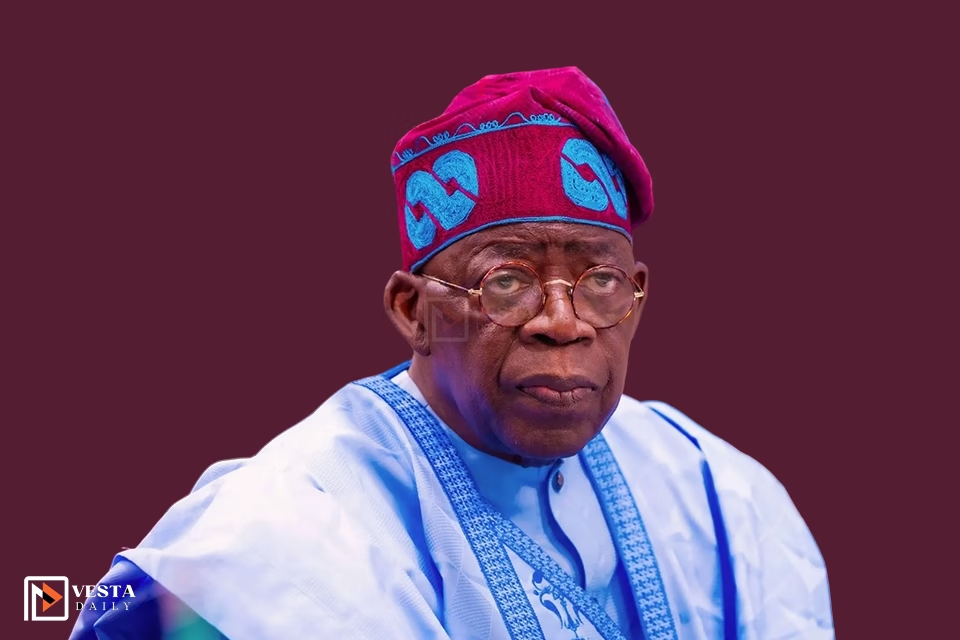Nigeria’s Chief of Staff Prioritizes Economic Development Amid Political Tensions
The Presidency has issued a statement emphasizing that Nigeria’s Chief of Staff, Bola Tinubu, remains focused on “positively impacting the lives of citizens” rather than the upcoming general elections. This declaration comes amid growing political tensions and economic challenges facing the country.
Economic Reforms Take Center Stage in Administration’s Focus
According to a statement shared on X (formerly Twitter) by Special Adviser to Tinubu on Media and Public Communications, Sunday Dare, the administration’s primary concern is delivering tangible economic improvements.
“President Tinubu is not worried about the next election, he’s worried about the shared prosperity that he can bring to Nigerians,” the statement declared. “He’s worried about how the reforms he has put in place will yield the necessary impact. He is concerned about what will happen to the economy of this country eventually. That’s the focus.”
Administration Claims Economic Indicators Show Positive Trends
The statement highlighted several economic indicators that the administration views as signs of progress:
- Increased foreign reserves
- Declining inflation rates
- Growing trade surplus
- Rising exports and falling imports
- Attraction of over $50 billion in investments
- Declining prices for consumer goods
These metrics are being presented as evidence that the administration’s economic policies are beginning to show results, despite ongoing challenges facing many Nigerians.
Political Landscape Shifts as Opposition Movements Gain Momentum
The Presidency’s statement comes at a time when efforts to form a coalition that could challenge Tinubu in the 2027 elections are reportedly gaining traction. Most notably, former Kaduna State Governor, Nasir El-Rufai, recently decamped from the All Progressives Congress (APC) to join the Social Democratic Party (SDP).
This high-profile defection has fueled speculation about potential realignments in Nigeria’s political landscape. According to the Nigeria Political Landscape Monitor, such movements between parties often intensify as elections approach, particularly when economic conditions create voter dissatisfaction.
Economic Realities and Political Messaging
While the administration points to improving macroeconomic indicators, many Nigerians continue to struggle with rising living costs and economic hardship. The disconnect between official economic statistics and everyday experiences has become a central theme in political discourse.
“Economic policy impact is often experienced unevenly across different segments of society,” explains Dr. Amina Ibrahim, an economic policy expert at the Center for Economic Development. “Macroeconomic indicators may show improvement while many households still face significant financial pressures.”
Looking Ahead: Balancing Reforms and Economic Relief
As the administration continues implementing its economic reform agenda, balancing long-term structural changes with immediate relief for citizens remains a critical challenge. The Nigerian Economic Summit Group has emphasized that successful economic transformation requires both policy patience and addressing immediate hardships.
For businesses and investors navigating Nigeria’s economic landscape, understanding both the administration’s policy direction and the political context will be essential for strategic planning.
Navigating Nigeria’s Evolving Economic Environment
For organizations operating in Nigeria, staying informed about policy developments and economic trends is crucial for success in this dynamic market.
Call to Action:
Access our comprehensive guide, “Navigating Nigeria’s Economic Reforms: Strategic Insights for Businesses”, to receive an in-depth analysis of current policies, emerging opportunities, and risk mitigation strategies. Subscribe to our monthly economic briefing for regular updates on Nigeria’s business environment.



